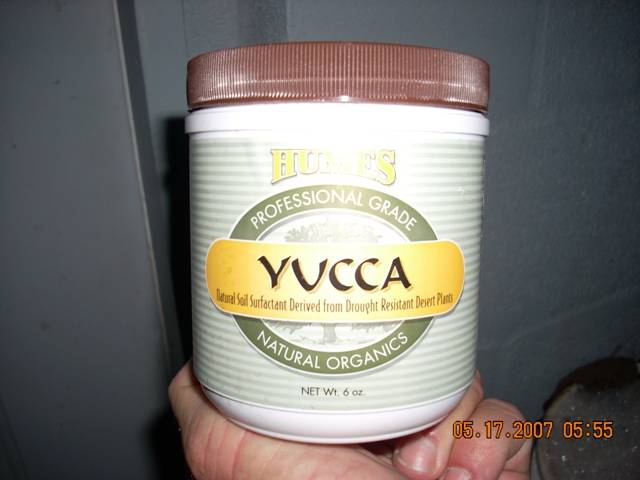Thomkal Vwalaa
Member
Really it stands for spider mites? Kings of misinformation, lol.
i've heard this so many times. so annoying.

What does the SM stand for? Surely not spider mites
Really it stands for spider mites? Kings of misinformation, lol.

Aloe Vera juice (only) - contains 5% saponins, 10-12% brix levels, 22 amino acids and costs $7.99 per gallon @ Trader Joe's Markets.
Application rate is 2 - 4 oz. to 1 gallon of water. Like any good 'wetting agent' it's equally effective as a surfactant - a distinction without a difference.
CC
That sounds interesting CC thanks. I have been using Coco-Wet and as another poster mentioned Earth Juice makes one called "Assist" and I believe it is Yucca based.

Doesn't the ionic nature of the Penetrator make it non-desirable?
That seems to be conventional wisdom with many here these days. Thing is, one needs to understand what is meant by "sterilize" and just how the product goes about it.If i have a product that claims multiple things but one of those is sterlizing i would not mix that with anything that you want to remain alive.
That seems to be conventional wisdom with many here these days. Thing is, one needs to understand what is meant by "sterilize" and just how the product goes about it.
H202 releases oxygen and the oxygen will attack and kill anaerobic bacteria it comes in contact with, as that sort of bacteria cannot survive in the presence of oxygen. This same oxygen is thrived on by aerobic bacteria, such as beneficial bacteria living at the root zone.
Now, knowing about anaerobic vs aerobic bacteria, and knowing what H202 really is and what it does, wouldn't it be you that needs to answer what brings you to the conclusion that such a product does indeed kill beneficial bacteria?
Could it be that it is just the fact that the word sterilize is used, and you are using that and nothing more than an assumption?
Or maybe you have something to point to that shows what I explained about what bacteria thrives in is off?